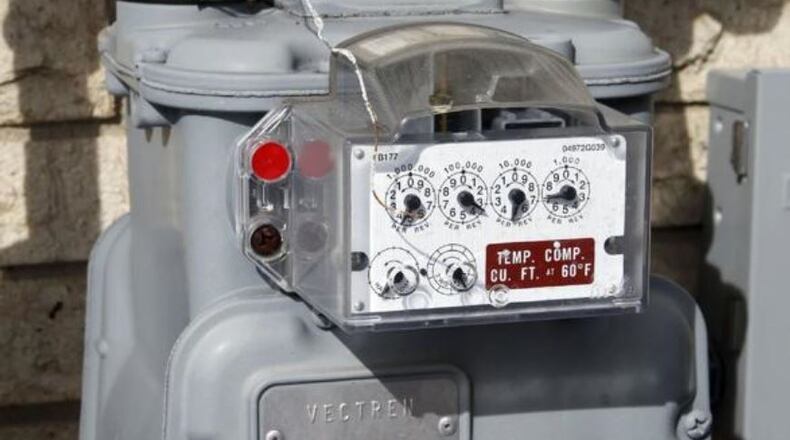» BUSINESS: Local bank branches close as consumers turn to technology
The two-day cold snap will likely have an even more of an impact on heating bills in the Midwest, said Bob Wilkens, University of Dayton associate dean of research who spent two decades working at Shell Oil Company.
“It’s hitting in a part of the country that’s pretty dependent on natural gas as a heating source,” Wilkens said. “It’ll probably put a huge demand on that supply.”
More than 64 million American homes are heated with natural gas. This is accounts for more than half of the homes in the U.S, according to the Energy Information Administration.
In December — the most recent month for which data is available —natural gas reserves were at their lowest point since August in the midwestern United States, according to the Energy Information Administration. EIA data shows midwest reserves are coming off their lowest point since 2014, which Wilkens said often translates to higher heating bills.
A December spot check on the price of natural gas showed it to be at $4.04 per million British thermal units. It marks just the second time gas prices reached that level since September 2014, according to the Energy Information Administration.
Vectren, which delivers natural gas to homes in the Dayton region, saw usage about 60 percent higher Wednesday than during a typical winter day, said Vectren spokeswoman Natalie Hedde.
The high demand and low supply will likely translate to higher heating bills across the Ohio, Wilkens said. Higher prices and colder temperatures mean households could end up paying around 5 percent more in heating costs this winter, Wilkens predicted in December.
» LOCAL: Faculty strike could impact Wright State's enrollment, finances
Late last year, Vectren projected heating costs would be “affordable” this winter. The company said there are a number of ways concerned customers can cut down on their utility bills.
Vectren customers can set up a budget to pay an equal payment every month instead of a fluctuating bill and households of four people making less than $75,300 a year can apply for weatherization help from the gas delivery company. Ohio, along with the federal government, also offers assistance to pay utility bills for households of four making $43,925 or less.
“As it pertains to the cold days and what it means for heating bills that is entirely dependent on each unique situation for our customers in Ohio,” Hedde said. “Each customer has a choice in who they receive their natural gas from and so that varies depending on the unique situation that customer has with their supplier.”
FIVE FAST READS
• Easton to anchor expansion with new store in 2019
• WSU may face more scrutiny despite deal on federal visa investigation
• Heating costs could spike this winter as natural gas prices increase
• EXPERT: Wright-Patterson ‘crucial to avoiding a defeat if there’s a World War III,’
• What UD’s change in its China Institute says about shifts in higher education
Help with late payments
To help you avoid late payment fees and remain in good financial standing, Vectren offers special one-time due date extensions for customers who qualify. However, once an extension is granted, it is not permanent. To enroll, call 1-800-227-1376.
About the Author
